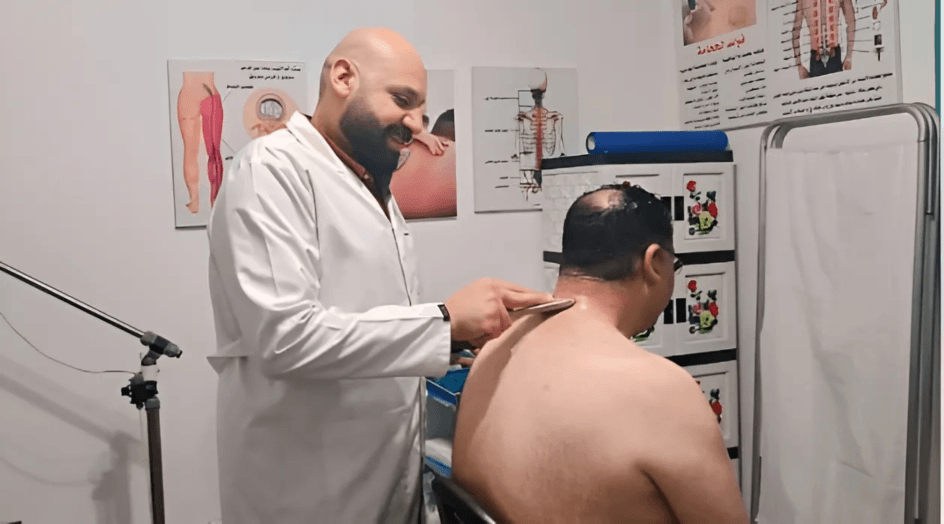herniated disc





















Definition of herniated disc
If you suffer from chronic back or lower extremity pain, it may be due to a herniated disc, a common condition that can affect your ability to move and perform daily tasks. We offer specialized physiotherapy sessions aimed at relieving pain and improving the mobility of the spine.
For reservations and communication
Causes of herniated disc
Aging: Cartilage wears down, increasing the risk of a herniated disc.
Physical stress: Strenuous physical activities, such as lifting heavy weights, can cause a herniated disc.
Direct injuries to the spine: Whether from car accidents or sports injuries, they can increase the risk of a herniated disc.
Symptoms that may indicate a herniated disc
- Severe lower back pain: This pain may extend to the legs and feet, and gets worse with movement.
- Muscle weakness or numbness: Especially in the lower extremities, which may affect walking or standing for long periods.
Our physical therapy plans for herniated disc treatment
Deep Tissue Massage and Manual Techniques: Deep Tissue Massage is used to relieve muscle tension, and involves indirectly moving the vertebrae to relieve pressure on damaged discs.
Stretching and mobilization techniques: To improve spinal flexibility and reduce pain, the therapist uses manual and mobilization stretching techniques.
Ultrasound Therapy: This technique helps reduce inflammation and relieve pain, as the waves improve blood circulation and promote healing of damaged tissues.
Posture Guidance: We give you tips on how to avoid excessive bending or twisting, in order to reduce pressure on the vertebrae of the spine.
For reservations and communication








